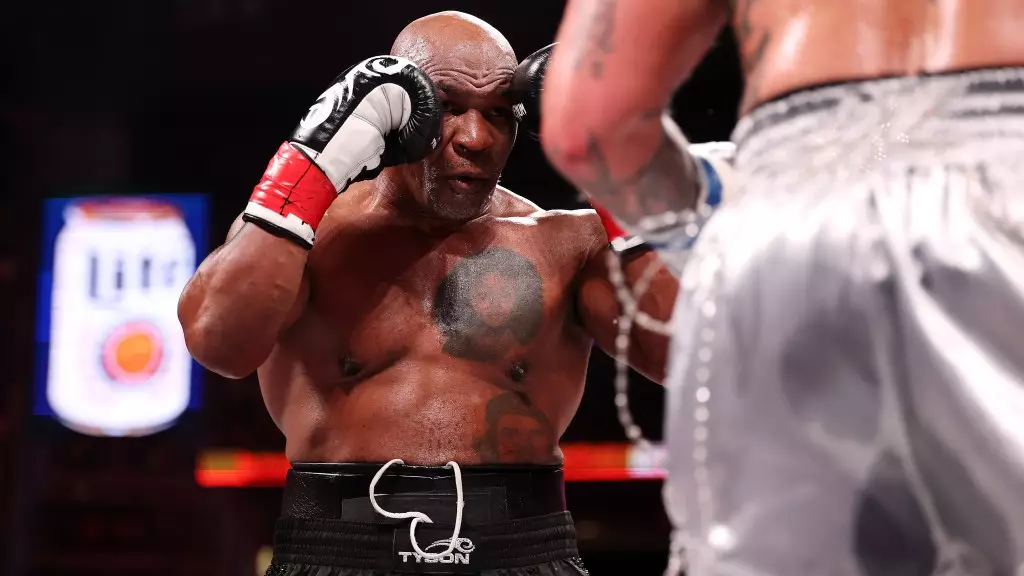Mike Tyson’s recent boxing match against Jake Paul has sparked conversations that extend beyond the fight itself, particularly regarding an unusual behavior: the frequent biting of his own gloves. Such actions are not conventional in the sport of boxing, yet Tyson’s actions garnered significant commentary from the ringside team during the airing of the event. Commentators including Mauro Ranallo, Roy Jones Jr., and Rosie Perez expressed curiosity and concern about this peculiar occurrence.
Tyson’s habit is notable for many reasons, not the least of which is its potential impact on his performance and the broader implications it holds for understanding psychological quirks in athletes. Throughout the match, commentators speculated on whether Tyson was experiencing a problem with his mouthpiece. However, Roy Jones Jr. seemed particularly fixated on the behavior, repeatedly highlighting it for viewers, which perhaps made it seem even more pronounced.
The Sanctioned Rawness of Tyson’s Career
Biting has become a storied part of Tyson’s legacy, culminating in the infamous incident where he bit Evander Holyfield’s ear in their 1997 rematch. The nature of this fixation on biting—whether it pertains to opponents, gloves, or otherwise—induces questions about Tyson’s mindset, coping mechanisms, and the psychological aspects of competing at such a high level. It is of note that Tyson himself acknowledged this predilection: in an interview post-fight with Ariel Helwani, he openly referred to it as a habit, even dubbing it a “biting fixation.”
For athletes like Tyson, whose careers have been marred by both incredible highs and significant lows, such expectations and peculiarities become hallmarks of their time in the spotlight. It raises the question of the pre-fight mental state for boxers—how do they cope with the immense pressure that comes with stepping into the ring? Tyson’s glove-biting can perhaps be viewed as a physical manifestation of his complex relationship with performance anxiety and the tumultuous history that he carries.
The Game’s Evolution and Audience Engagement
In a larger context, Tyson’s match against Jake Paul represents the evolving dynamics of modern boxing, where match-ups often transcend traditional rivalries or categories focused solely on skill. Instead, the spectacle, personalities, and even idiosyncrasies become focal points. Viewers are drawn not just to the fight but also to the stories and quirks surrounding the fighters. Tyson’s memorable idiosyncrasies, such as his glove-biting, serve to engage audiences beyond the realm of sport into a psychological analysis of the fighter.
The fight itself ended with a decisive unanimous decision in favor of Paul, prompting discussions about Tyson’s current standing in the sport. His unique behaviors, however, provided additional layers of entertainment and intrigue, showcasing that he remains a fascinating figure within boxing. This mixture of nostalgia, curiosity, and critical analysis continues his saga in the public eye, ensuring that the spectacle of Mike Tyson extends far beyond just the outcome of any single match.
In retrospect, Tyson’s glove-biting fixation offers insight into not just a singular athlete but also serves as a reflection of the sport’s diverse psychological landscape. It reminds us that winning in boxing is often as much about mental fortitude as it is about physical prowess.

